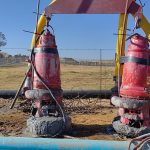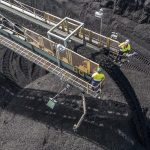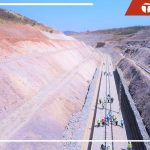First Quantum Minerals Ltd. has dropped plans to sell minority stakes in its Zambian copper mines after securing a $1 billion gold-streaming agreement that eased pressure on its balance sheet.
The Canadian miner had previously considered offloading shares in its Kansanshi and Sentinel mines following the forced closure of its flagship Cobre Panama operation in late 2023. However, CEO Tristan Pascall confirmed in an interview on Aug. 22 that the company is no longer pursuing such a transaction.
“Whilst we’re definitely open to partnerships and we continue to look at that, we are not looking for a transaction in Zambia,” Pascall said.
First Quantum had been in talks with potential investors, including Japan’s Mitsui & Co. and Saudi Arabia’s Manara Minerals, about acquiring stakes. But the gold-streaming deal with Royal Gold Inc.—the largest of its kind globally in the past decade, according to RBC Capital Markets—combined with $1 billion in debt refinancing and copper prepayment agreements, has strengthened the miner’s financial footing.
The company also commissioned a $1.25 billion expansion at Kansanshi on Aug. 19, which is expected to restore strong cash flow from its Zambian operations. These mines have become increasingly vital, contributing over 90% of First Quantum’s output last year and more than half of Zambia’s total copper production, making them a cornerstone of Africa’s second-largest copper producer.
With net debt reduced to about $4.5 billion, First Quantum has gained breathing room as it negotiates with Panama over the potential restart of Cobre Panama. The mine’s suspension wiped out a major revenue source, but shares in the company have rebounded more than 50% since early April.
Panama’s government allowed the company in June to resume exporting stockpiled copper concentrates. Pascall said any timeline for restarting operations would depend on President Jose Raul Mulino’s administration.
“We can be constructive, we can be patient,” Pascall noted. “Very much we believe that will be led by government, led by the president in terms of their expectations for the timetable as we walk our way through.”















